Reports and studies
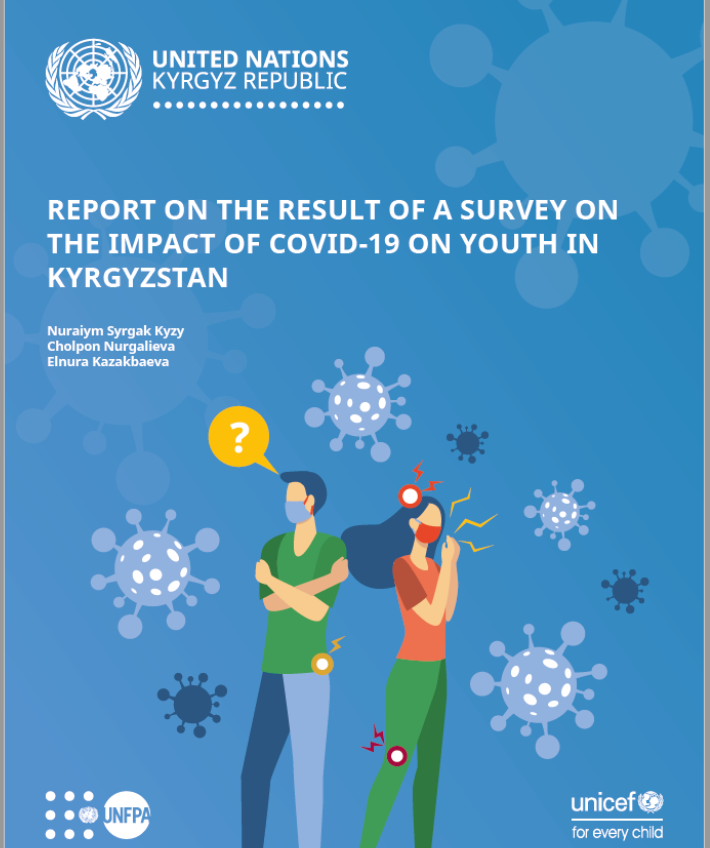
REPORT ON THE RESULT OF A SURVEY ON THE IMPACT OF COVID-19 ON YOUTH IN KYRGYZSTAN
Agency: UN AgenciesSector: Reports and studies
This report presents the results of a survey conducted among urban and rural youth and adolescents on the impact of COVID-19 on income, work and employment, social protection, education and health, as well as the psychological state of young people. The report looks at the impact of youth challenges and problems caused by the pandemic from a gender and age perspective. In addition, data on vulnerable groups are presented separately, which include young people living with HIV/AIDS, those with limited health opportunities, and children of migrants. The main research tool was a quantitative survey of young people aged 15-29 years. The data collection took place from 3 to 13 June 2020 and covered all regions of the country.
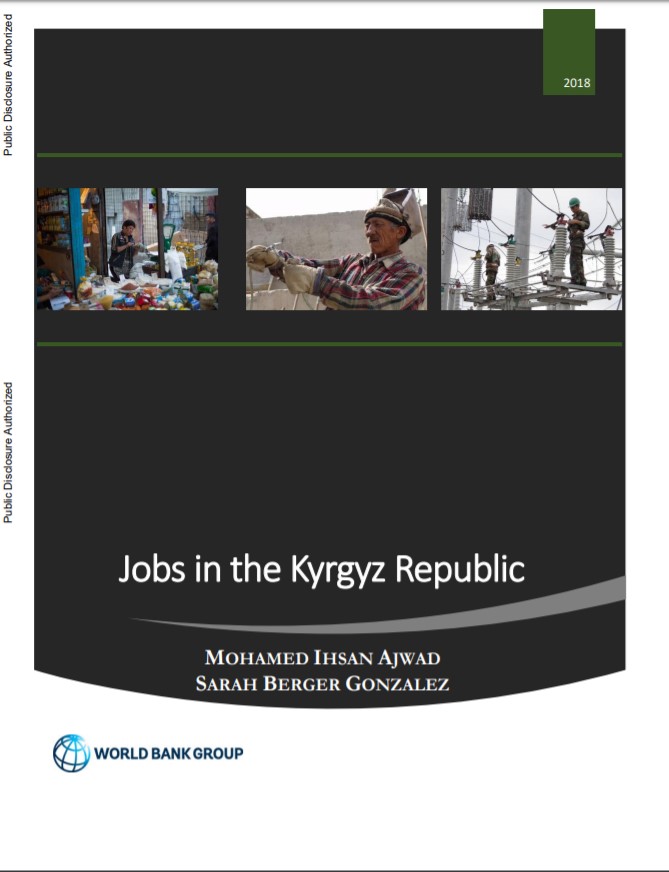
Jobs in the Kyrgyz Republic
Agency: World BankSector: Reports and studies
Job creation is not keeping pace with the rapidly growing population. Kyrgyz Republic’s potential workforce is growing at about 2 percent per annum – faster than some of its neighbors in Europe and Central Asia. Fertility rates in Kyrgyz Republic have increased since 2000, from 2.4 to 3.2 in 2014. An estimated 50,000 new entrants join the labor market each year. By 2030, the working-age population is expected to reach around 4.6 million persons. Acknowledging the challenging economic and political environment in the Kyrgyz Republic, the report offers realistic policy recommendations for addressing some of the most critical issues to improving jobs outcomes in the short run while noting that some policies will take time to develop and implement.
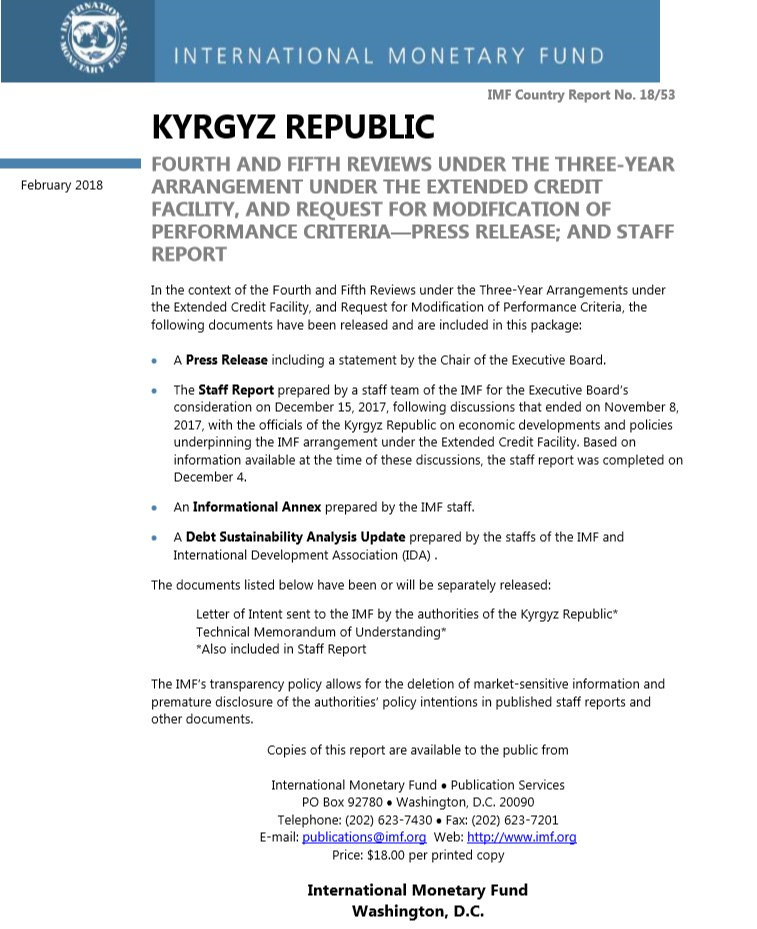
KYRGYZ REPUBLIC FOURTH AND FIFTH REVIEWS UNDER THE THREE-YEAR ARRANGEMENT UNDER THE EXTENDED CREDIT FACILITY
Agency: IMFSector: Reports and studies
On December 15, 2017, the Executive Board of the International Monetary Fund (IMF) completed the fourth and fifth reviews of the Kyrgyz Republic’s economic performance under the three-year Extended Credit Facility (ECF) arrangement. The Board’s completion of the reviews enables the immediate disbursement of an amount equivalent to SDR 19.028 million (about US$26.9 million). This would bring total disbursements under the arrangement to an amount equivalent to SDR 57.084 million (about US$80.7 million). “The Kyrgyz economy is showing welcoming signs of recovery as the external environment is gradually improving. While significant risks remain, debt and financial sector vulnerabilities have subsided. The authorities are committed to prudent macroeconomic policies and implementation of structural reforms, and see them as essential to promoting higher and more inclusive growth and to increase economic resiliency.
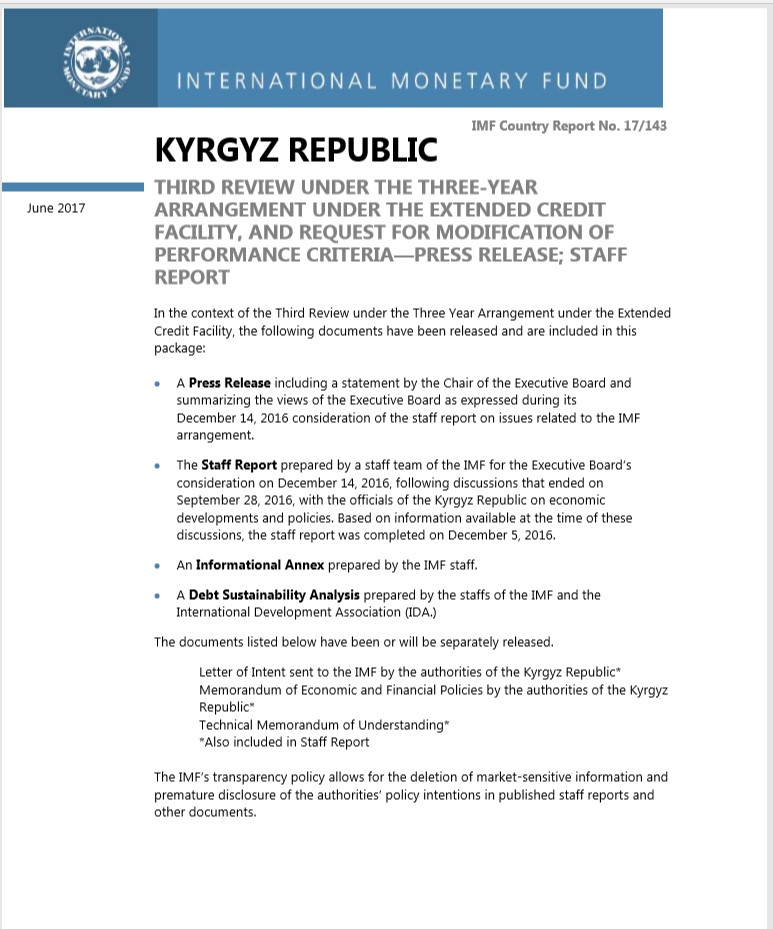
KYRGYZ REPUBLIC THIRD REVIEW UNDER THE THREE-YEAR ARRANGEMENT UNDER THE EXTENDED CREDIT FACILITY
Agency: IMFSector: Reports and studies
On December 14, 2016, the Executive Board of the International Monetary Fund (IMF) completed the third review of the Kyrgyz Republic’s economic performance under the threeyear Extended Credit Facility (ECF) arrangement. The Board’s approval enables the immediate disbursement of SDR 9.514 million (about US$12.9 million). This would bring total disbursements under the arrangement to SDR 38.056 million (about US$51.5 million). The ECF arrangement for SDR 66.6 million (about US$92.4 million) was approved on April 8, 2015. “While pressures on the economy are moderating, the near–term outlook remains challenging. A subdued external environment and weak domestic demand are constraining growth prospects. Debt and financial sector vulnerabilities remain elevated.
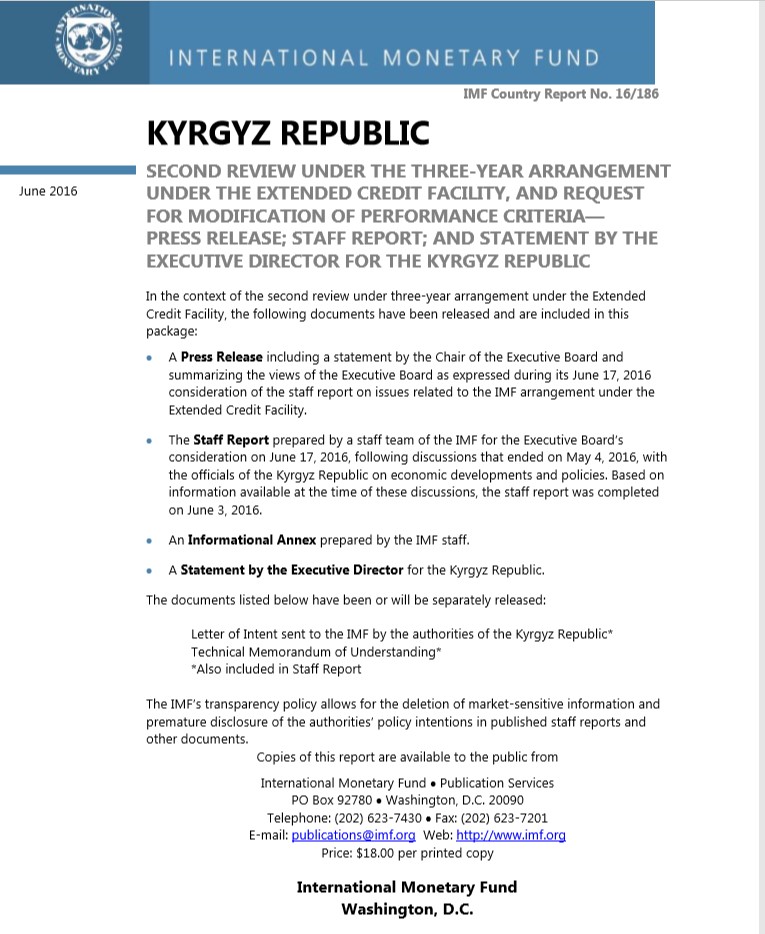
KYRGYZ REPUBLIC SECOND REVIEW UNDER THE THREE-YEAR ARRANGEMENT UNDER THE EXTENDED CREDIT FACILITY
Agency: IMFSector: Reports and studies
On June 17, 2016, the Executive Board of the International Monetary Fund (IMF) completed the second review of the Kyrgyz Republic’s economic performance under the three-year Extended Credit Facility (ECF) arrangement. The Board’s approval enables the immediate disbursement of SDR 9.514 million (about US$13.4 million). This would bring total disbursements under the arrangement to SDR 28.542 million (about US$40.3 million). “The Kyrgyz authorities have been able to maintain their Fund-supported program broadly on track despite persistent external shocks, including lower commodity prices as well as weaker growth and currencies in trading partners.
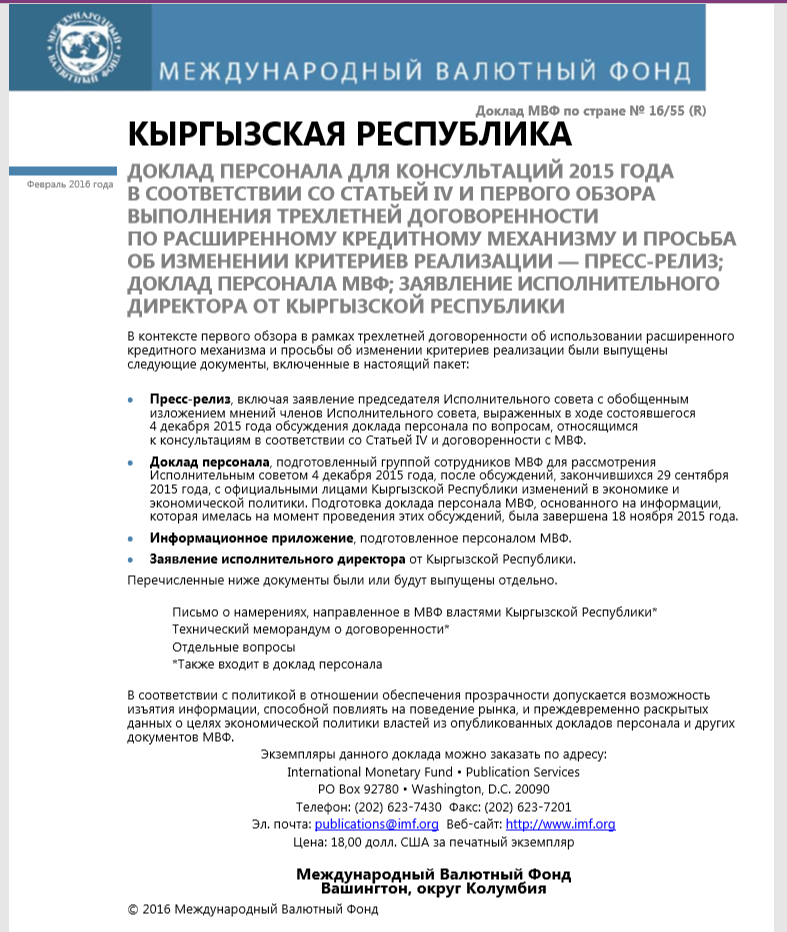
KYRGYZ REPUBLIC STAFF REPORT FOR THE 2015 ARTICLE IV CONSULTATION AND FIRST REVIEW UNDER THE THREE-YEAR ARRANGEMENT
Agency: IMFSector: Reports and studies
On December 4, 2015, the Executive Board of the International Monetary Fund (IMF) completed the first review of the Kyrgyz Republic’s economic performance under the three-year arrangement under the Extended Credit Facility (ECF). The Board’s approval enables the immediate disbursement of SDR 9.5 million (about US$13.2 million). This would bring total disbursements under the arrangement to SDR 19 million (about US$26.4 million). “The Kyrgyz authorities have managed successfully to keep the program largely on track despite that the economy continues to face adverse external and domestic shocks. The economic slowdown, currency depreciations in the region, and falling gold prices and remittances have reduced economic growth, worsened external and fiscal balances, and weakened debt sustainability. Budgetary slippages linked to the October elections have also weakened the fiscal situation.
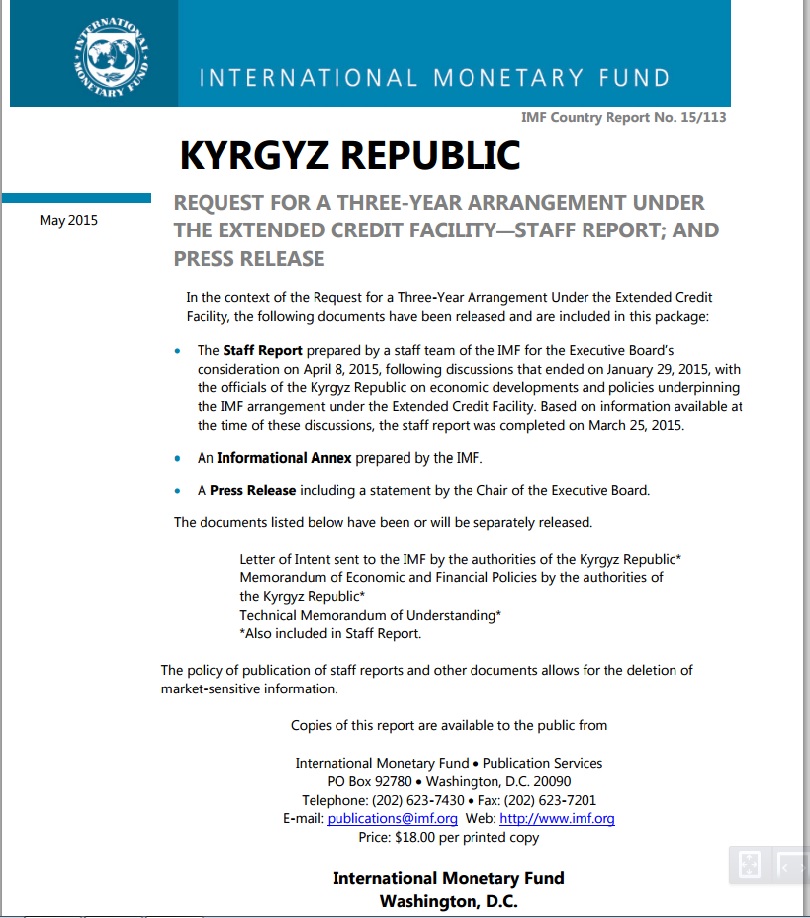
Kyrgyz Republic: Request for a Three-Year Arrangement Under the Extended Credit Facility-Staff Report
Agency: IMFSector: Reports and studies
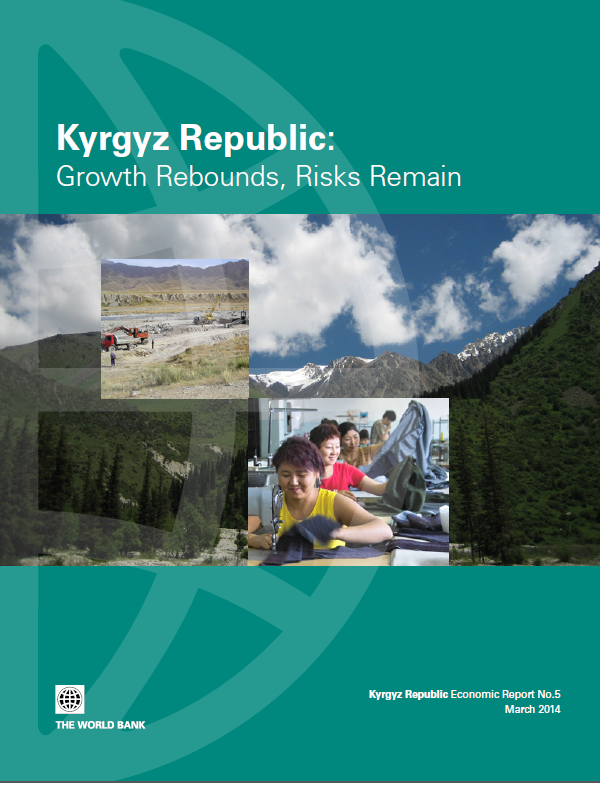
Economic Report KR - WB
Agency: WBSector: Reports and studies
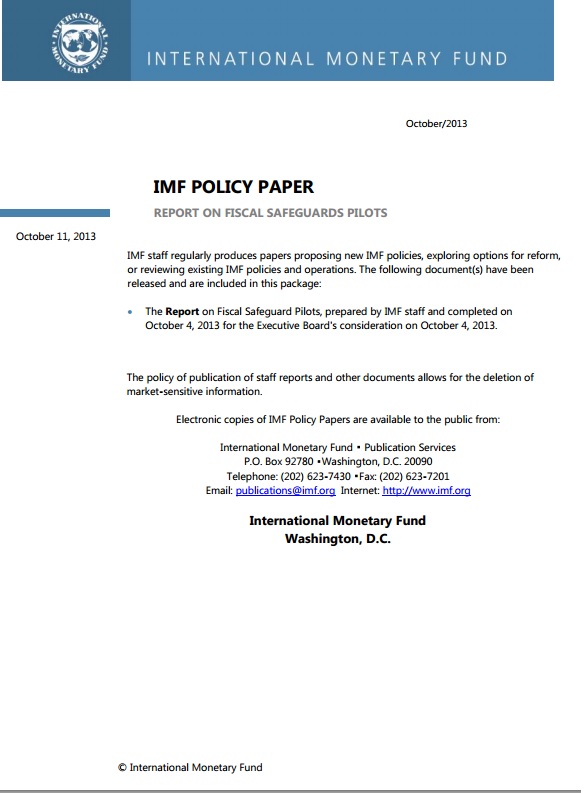
IMF POLICY PAPER: REPORT ON FISCAL SAFEGUARDS PILOTS
Agency: IMFSector: Reports and studies
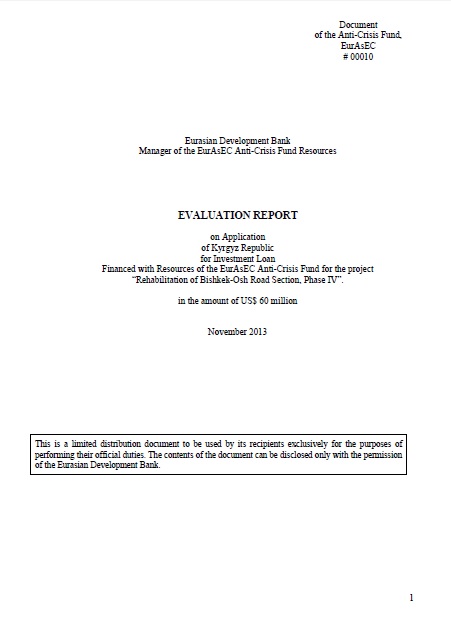
Evaluation Reports on Applications of Kyrgyz Republic for Investment Loans
Agency: ACFSector: Reports and studies